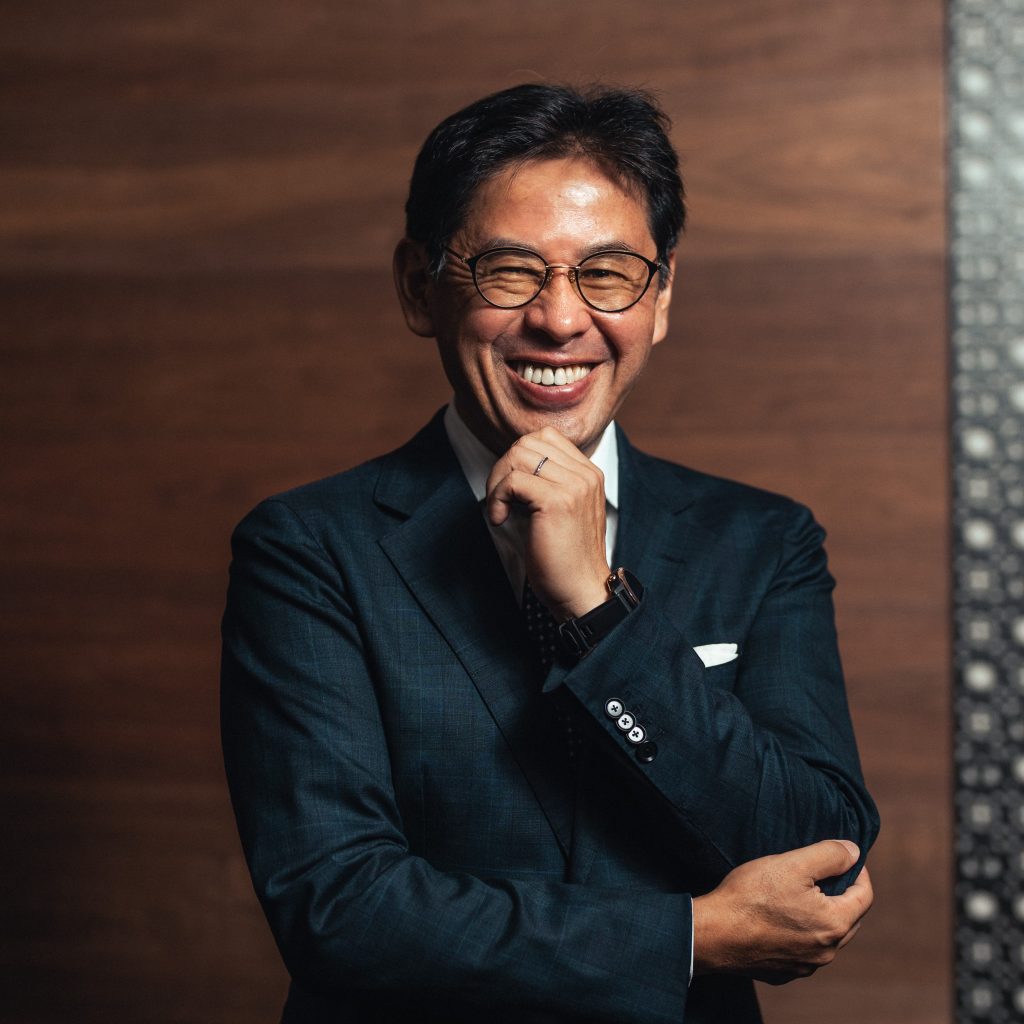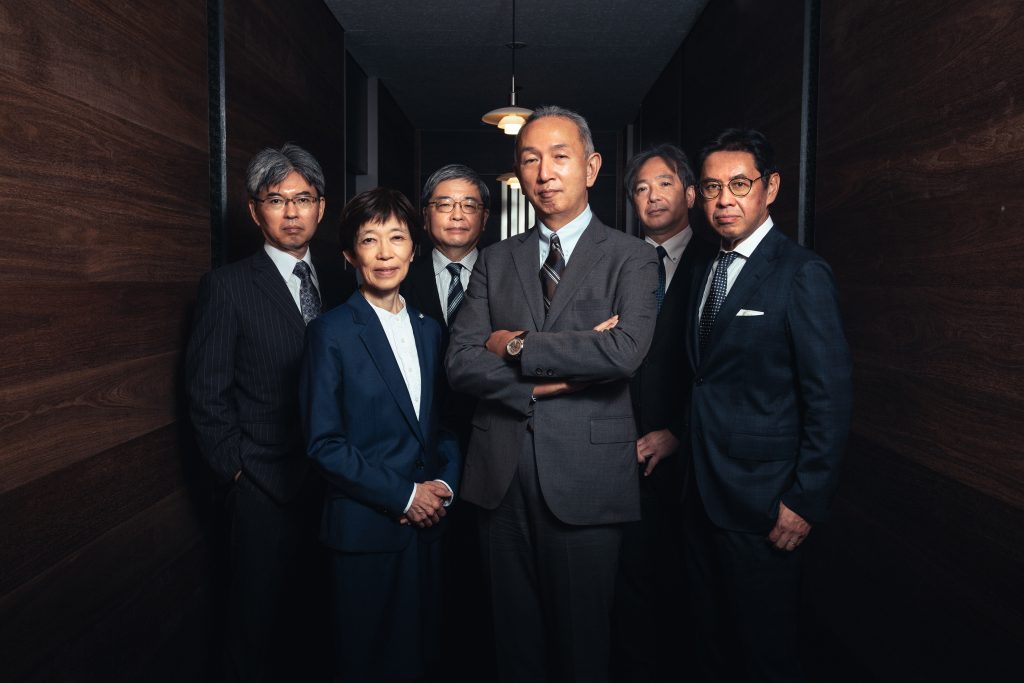Directly Speaking with High School Students Interested in Japan to Turn the Yotsuya Campus into a Melting Pot

Sophia University has launched two initiatives to bring even more diversity to the Yotsuya campus, which some call its own small international community. Shigeru Nishizawa, Vice President for Admissions Affairs, talks about the new approach the University is taking to communicate the essence of Sophia University to high school students outside of Japan.
Large International Attendance at the On Campus Information Session for English-taught Programs
One of Sophia University’s strengths is the internationality and diversity of its campus. University students come from every corner of the world, choosing Sophia as a destination for short- and long-term study abroad. Even one out of every six Sophia University faculty members is a foreign national.
Sophia offers many opportunities to study regions that may receive little attention or dedicated fields of study at other universities, such as Africa and Muslim countries. We believe the ability to respond to today’s unpredictable times and situations is developed through exposure to a variety of different values, which may show us the hints for surviving and thriving that hide in the shadows.
However, when I ask myself whether the current level of diversity we have achieved at Sophia University is the “ideal,” and whether we have done everything possible to improve campus diversity, I feel that we still have so much we can and should do.
The first On Campus Information Session for English-taught Programs was held in July 2023 to further diversify the campus. The main targets of this initiative are Japanese high school students living abroad who have returned to Japan for their summer holiday. We hypothesized that the more of these internationally experienced students we have on campus, the more opportunities there are for their fellow students to experience the different languages and cultures each of these students brings.
Many Japanese high school students who have lived abroad for a long time are not proficient in Japanese. If these students wish to enter a Japanese university and work in Japan, their education must offer the ability to earn graduation credits solely through English courses and offer a full range of Japanese language education.
Therefore, Sophia has adapted to offer multiple English degree programs across a wide variety of academic fields, with Japanese language courses for non-native speakers at different levels. Our On Campus Information Session for English-taught Programs is held so that prospective students can see first-hand how this campus environment is suited to their situation.
More than 500 high school students participated in the On Campus Information Session, vastly exceeding our expectations and demonstrating a clear need for in-person events even for those living overseas. Due to this high level of interest, we have also released English-language brochures for our three English-language degree programs, in addition to the existing university brochures.
We plan to continue holding these on-campus events during this academic year and beyond, and have high expectations for the number of foreign-raised Japanese students participating.
Visiting Local High Schools to Develop “Japan fans”
Overseas, there are not only those with roots in Japan, but there are also those who have no connection to Japan by family relation or upbringing, but are nonetheless interested in Japan and can be called “Japan fans.” We have begun to approach this previously untapped segment of high school students, inviting them to enroll not as short-term or long-term exchange students, but as full-time undergraduate students.
Take Thailand, for example. Many Japanese companies have established operations there, and Japanese goods and media are well-known and loved by the country’s many Japanophiles. Many Thai high school students are proficient in English, and if they attend Sophia University, a path to work in Japan as a trilingual speaker after graduation is opened.
Therefore, it became important to first visit local high schools in countries and regions with high degrees of interest in Japan and growth potential. We wanted to share more about Sophia University with students in these countries and also hear from them and their teachers about what is important for a university to offer.
As part of Sophia’s first such outreach effort, I will be traveling to Thailand and India, where I plan to visit 5 or 6 schools within a week. While Sophia University has nine overseas offices, as well as a global network of academic/international organizations, corporations, and alumni, I wanted to embark on this visit without relying on these connections and instead dive into these interactions with these high schools to get a true, local understanding.
Sophia University’s name recognition abroad as a “prospective school” remains unfortunately low at this point and there are probably very few of these high school students who know Sophia. To be honest, we cannot predict how many high school students are interested in Japan or how they will react to what we have to say, and what actions they take as a result.
However, without visiting the sources where our future international students hail from, we will fail to understand many things about their needs and aspirations. By understanding the size of the market, its needs, and if necessary, developing an entrance examination and curriculum more suitable to these students, we aim to increase the ratio of foreign students from the current level of less than 20%, to more than 25%.
The excellence of Japanese companies, which has long been overlooked, is now attracting attention from overseas as the Nikkei Stock Average reached an all-time high in late March. If Japan is found to offer opportunities for success, the number of foreign-raised Japanese people and non-Japanese youth who are “Japan fans” wanting to come to Japan will increase more than ever before.
We want to make the Yotsuya Campus into an environment where these high school students who aspire towards a future in Japan can take on new challenges. The diversification that this will bring about on campus will open up possibilities for all students, including for our Japanese students. Diverse environments are the source of innovation and the creativity fostered at the Yotsuya Campus will be a force that will further enhance Sophia University and Japan’s appeal.
